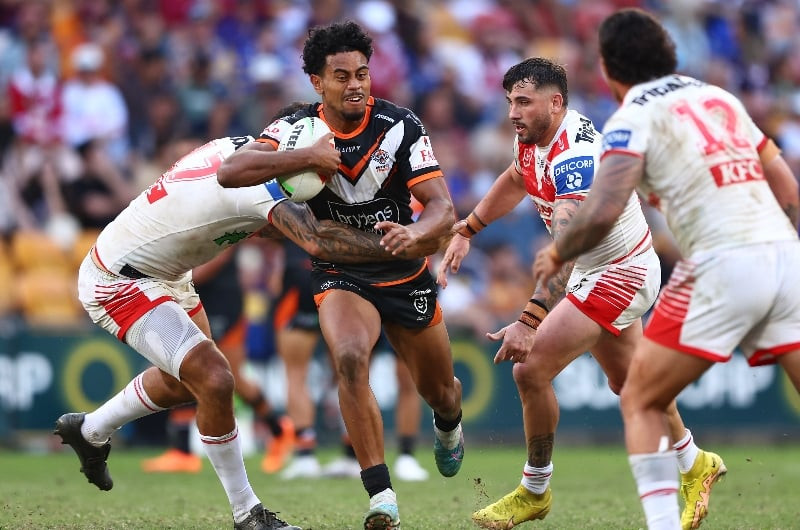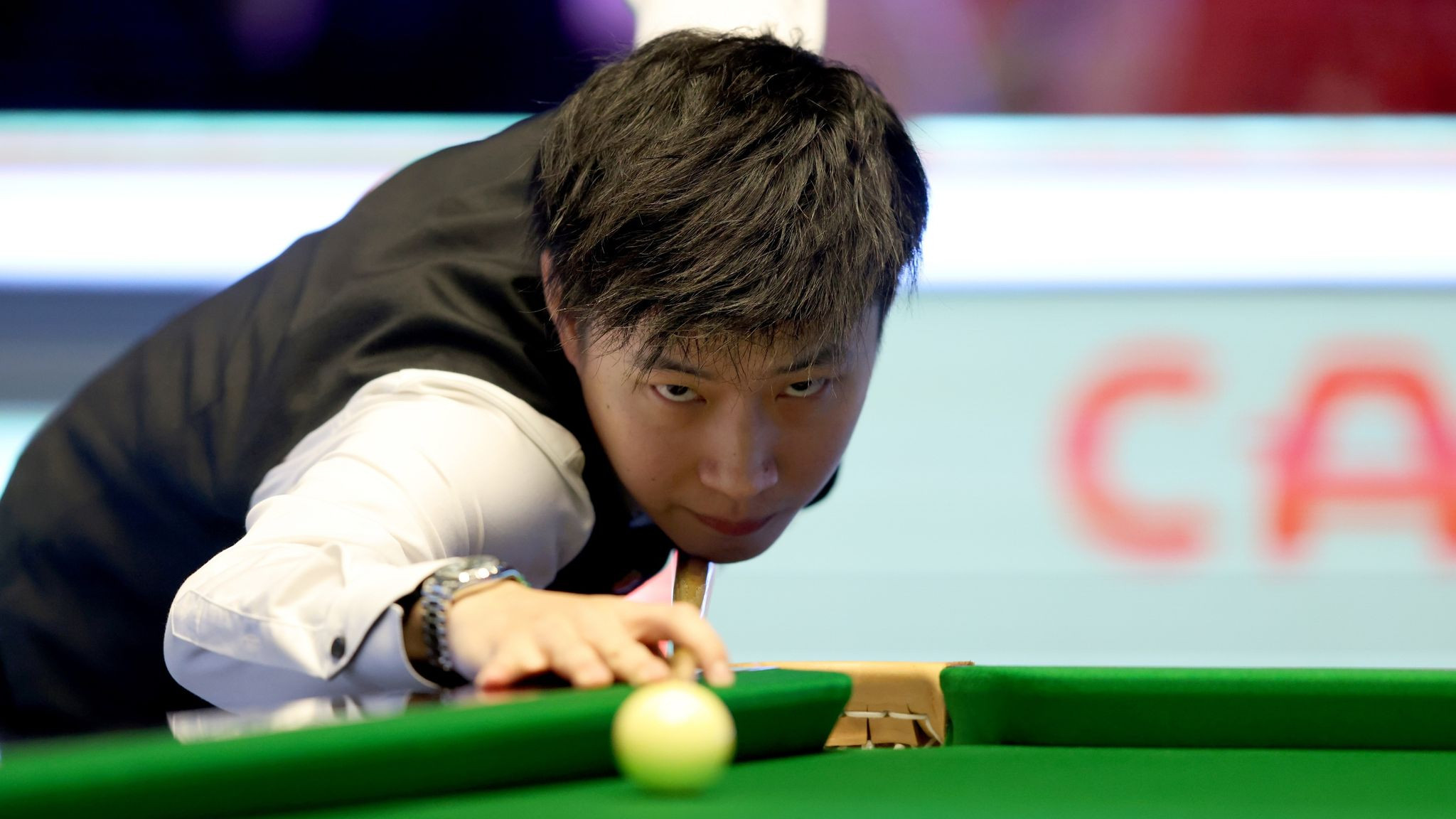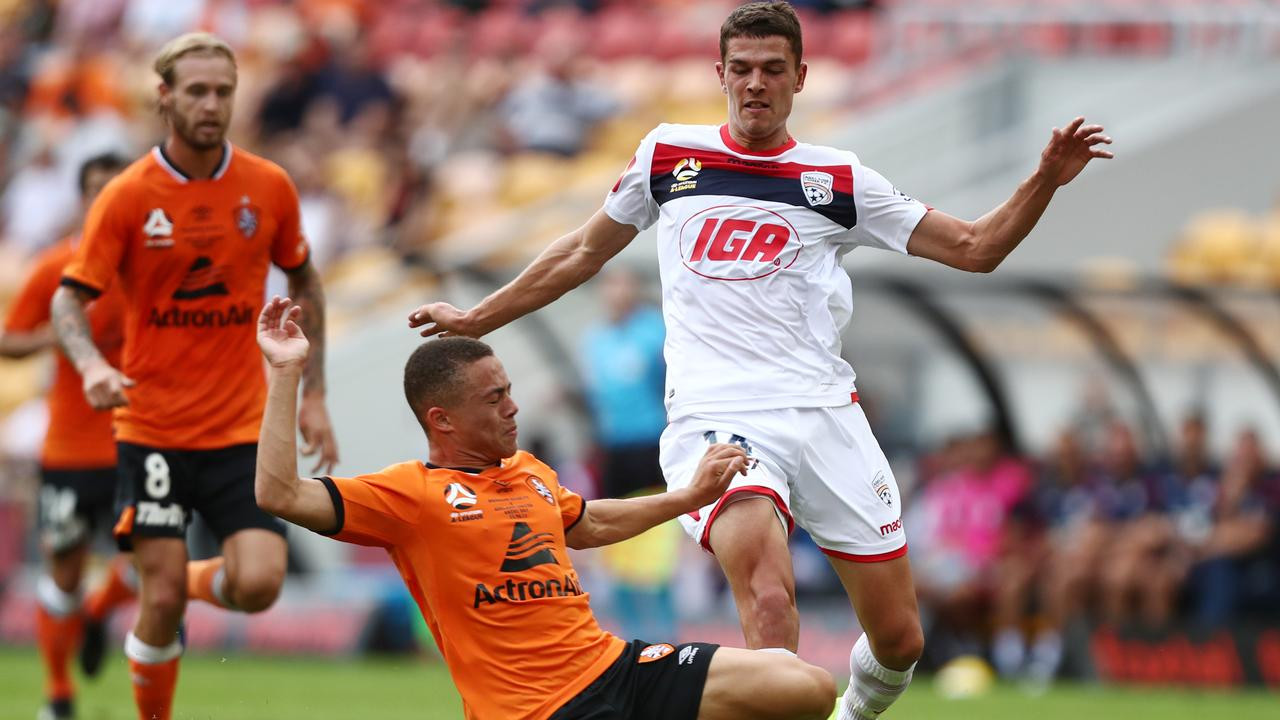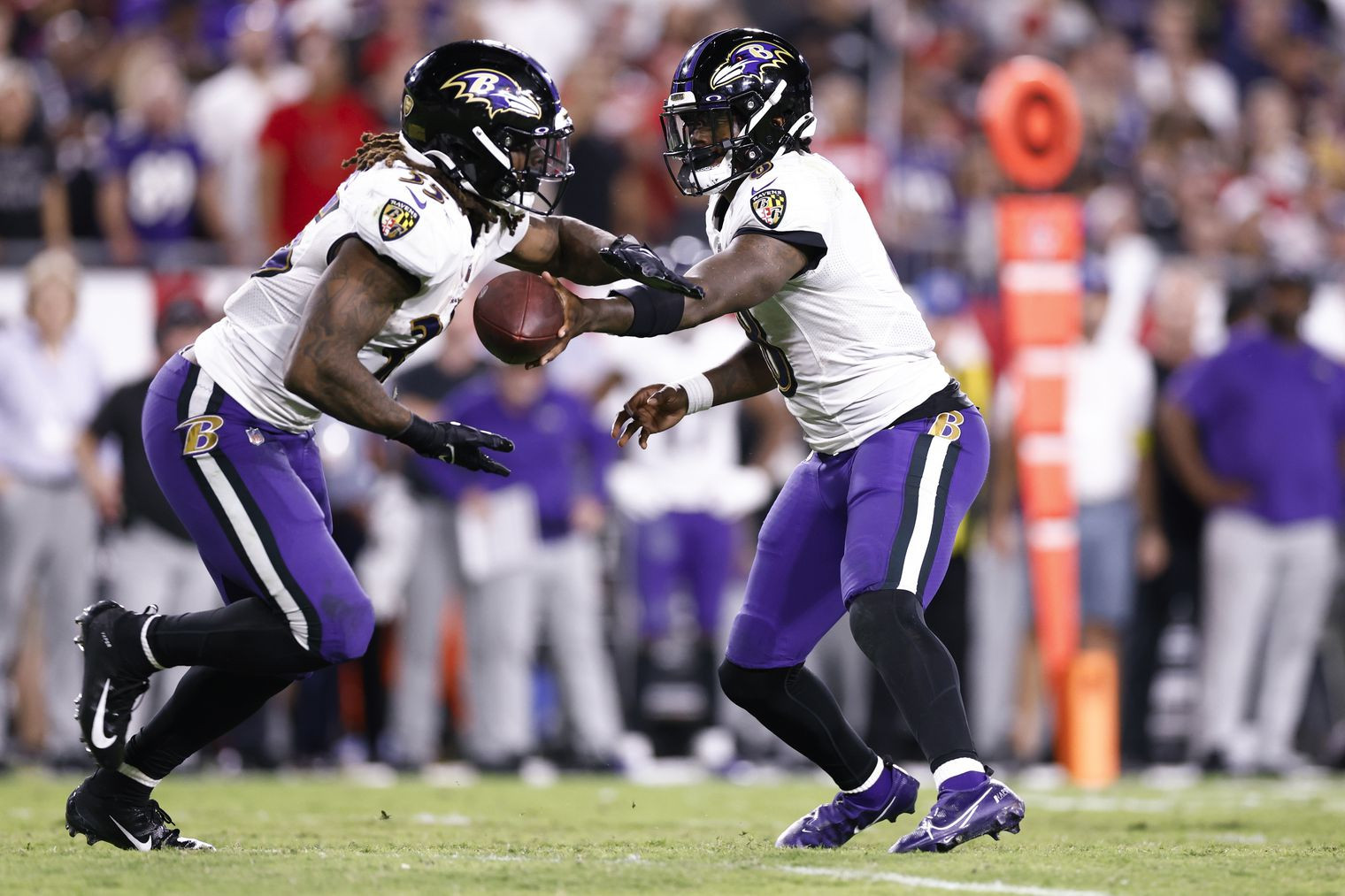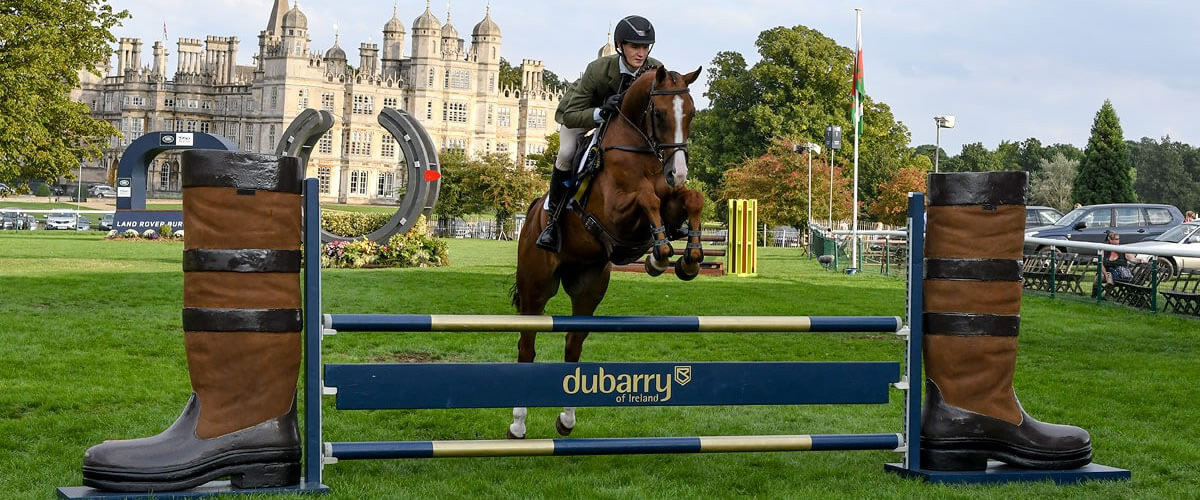This weekend's NRL clash between the Wests Tigers and the Parramatta Eels means an awful lot. But there's a lot more at stake for the losers. Both teams are locked on 18 points at the very base of the NRL ladder, meaning that the defeated side will be "awarded" the wooden spoon for finishing as the competition's worst team. Wests Tigers are hoping to avoid a record-equalling third-straight bottom-placed finish, while the Eels are hoping to avoid that ignominy for the first time since 2018.
The fact these two teams, both in contention for the wooden spoon, will meet in the final round of the season presents us with a "spoon bowl" — the dubiously titled match-up between the bottom two sides in the last game of the year. Who says that teams outside of finals contention have nothing to play for at the back end of the year?
But what does the wooden spoon even mean — aside from objectifying the widespread ridicule associated with being the league's worst team? The term wooden spoon has been around to describe NRL teams finishing bottom of the ladder for decades — as well as those in the AFL, rugby union's Six Nations and plenty of others around the world. But it actually traces its roots back a whole lot further than that.
In fact, we have to go all the way back to Cambridge University's mathematics course at the end of the 18th century to discover the origin of the term. Cambridge University was obsessed with ranking its students from highest to lowest, as opposed to Oxford University, where the classics were more important and the awarding of a degree was seen as an achievement in itself.
This was a time when academic achievement and intellectual ability, at Cambridge at least, were starting to be recognised ahead of social standing, meaning a tabulated ranking was essential. At universities, there were a number of different degrees that could be offered: first-class degree, second-class degree and third-class degree, all of which were given various names.
In Cambridge's final maths examination — the only honours exam at the university — the Senate House Examination, which later came to be known as the Mathematical Tripos, students who achieved a first-class degree were called Wranglers, a second-class degree Senior Optimes and a third class degree, Junior Optimes. The highest-ranked student in the exam was referred to as the Senior Wrangler from 1791.
But given there was a term for the leader, soon attention turned to the other end of the scale. So in 1793, another term emerged for the person who passed their degree but with the lowest possible score: the Wooden Spoon.
The reason why the word spoon was used to refer to the lowest-ranked student is disputed, but according to research conducted by Chris Stray from the University of Swansea, it may have been related to the slang term "spoony", which meant foolish.
The term physically manifested for the first time outside the gates of Clare College, Cambridge, in 1804. Clare College had provided the Wooden Spoon "winner" three years in a row and someone thought it would be a suitable prank to display that outside the college. No doubt Tigers fans will be hoping that history does not repeat if they earn their third straight this season. This was the first, but certainly not the last instance of an actual wooden spoon being awarded.
In 1823, The Cambridge Tart, a collection of poetry, made reference to the wooden spoon as being a "solid honour" in an eponymous verse about the award. And while he lives, he wields the boasted prize. Whose value all can feel, the weak, the wise; Displays in triumph his distinguish'd boon. The solid honours of the Wooden Spoon.
In 1832, there was the first-ever tie for a wooden spoon, with one of the men, Richard Shilleto, symbolically removing a small wooden spoon from his gown and splitting it in half to share with his fellow spooner, Matthew Chapman. As the 19th century progressed, the spoons advanced in style and size, its presentation being one of theatre as it dangled from the ceiling as the students collected their degrees, its size growing to monstrous proportions until the practice was finally banned in 1909.
Wooden spoons in sport continued to be a thing though — albeit without a physical representation. Mostly. In Major League Soccer, the Independent Supporters Council hands over a physical trophy to the team that finishes bottom of the ladder. And, when supporters of rival teams want to shame the bottom side, you can count on them rummaging through their kitchen drawers to wave wooden spoons in their opponents' faces.
Like in 2020, when the Brisbane Broncos finished bottom of the ladder, supporters left plenty of reminders on the field of the club's Red Hill training base. The Wooden Spoon society raises millions for charity through rugby. During the 1983 Five Nations Rugby Union Championship, England were at a low ebb.
After watching England fall to a 25-15 defeat against Ireland at Lansdown Road in Dublin, five England supporters, seeking solace in the local bar, were presented with a wooden spoon, wrapped in an Ireland scarf, on a silver platter. One of those men was Peter Scott, who proposed a golf match to see who should keep the gift. That match, in Surrey a few months later, raised more than 8,000 pounds, which was donated to the local special needs school for a new minibus. The following year, the Wooden Spoon became an officially registered charity and has since celebrated 40 years of fundraising, with over 31 million pounds (more than $60 million) raised to fund projects around the UK and Ireland.
Charitable contributions aside, it's hard to imagine fans of Wests Tigers or the Eels being overly thrilled about defeat on Friday night. But at least they can console themselves with their team being added to the rich history of Australian sport.
A Fight for Pride and a Chance to Turn the Corner
Despite the obvious disappointment of potentially claiming the wooden spoon, both teams are looking to use this match as a springboard for the future. Benji Marshall, the Wests Tigers coach, acknowledged the importance of the match for the club's younger players, stating, "It's a big game atmosphere for some of our young guys to experience what that is like, even though we are playing at the bottom of the table." He believes the experience gained this season will be invaluable in the club's long-term development.
The Future is Bright: A Look Ahead
While the Wests Tigers are focused on developing their young players, Parramatta Eels are undergoing a rebuild under their new coach, Jason Ryles. Both clubs have a lot of potential for the future, and this game could be a turning point for both teams.
The battle for the wooden spoon might not be the most glamorous affair, but it's a significant event for both teams and a chance for them to prove themselves on a national stage. The outcome of this match could have a lasting impact on the clubs' futures, as they fight to establish themselves as contenders in the years to come. The Eels are hoping to bounce back from a disappointing season, while the Tigers are looking to build a foundation for long-term success. Regardless of the outcome, this match will be a valuable experience for both teams, providing an opportunity to learn, grow and prepare for the future.
The Spoon Bowl: A Moment in History
The wooden spoon, though often seen as a symbol of failure, has a long and fascinating history. From its origins in the academic halls of Cambridge University to its enduring presence in the world of sport, the wooden spoon has become a part of the fabric of competitive culture. This weekend's Spoon Bowl will be just another chapter in this story, a reminder that even in the darkest of times, there is always an opportunity to learn, grow and move forward. The Wests Tigers and the Parramatta Eels may be fighting to avoid the ignominy of the wooden spoon, but they are also fighting for a chance to build a brighter future. This match is not just about the wooden spoon; it's about the future of these two clubs. It's about the journey, not just the destination.





